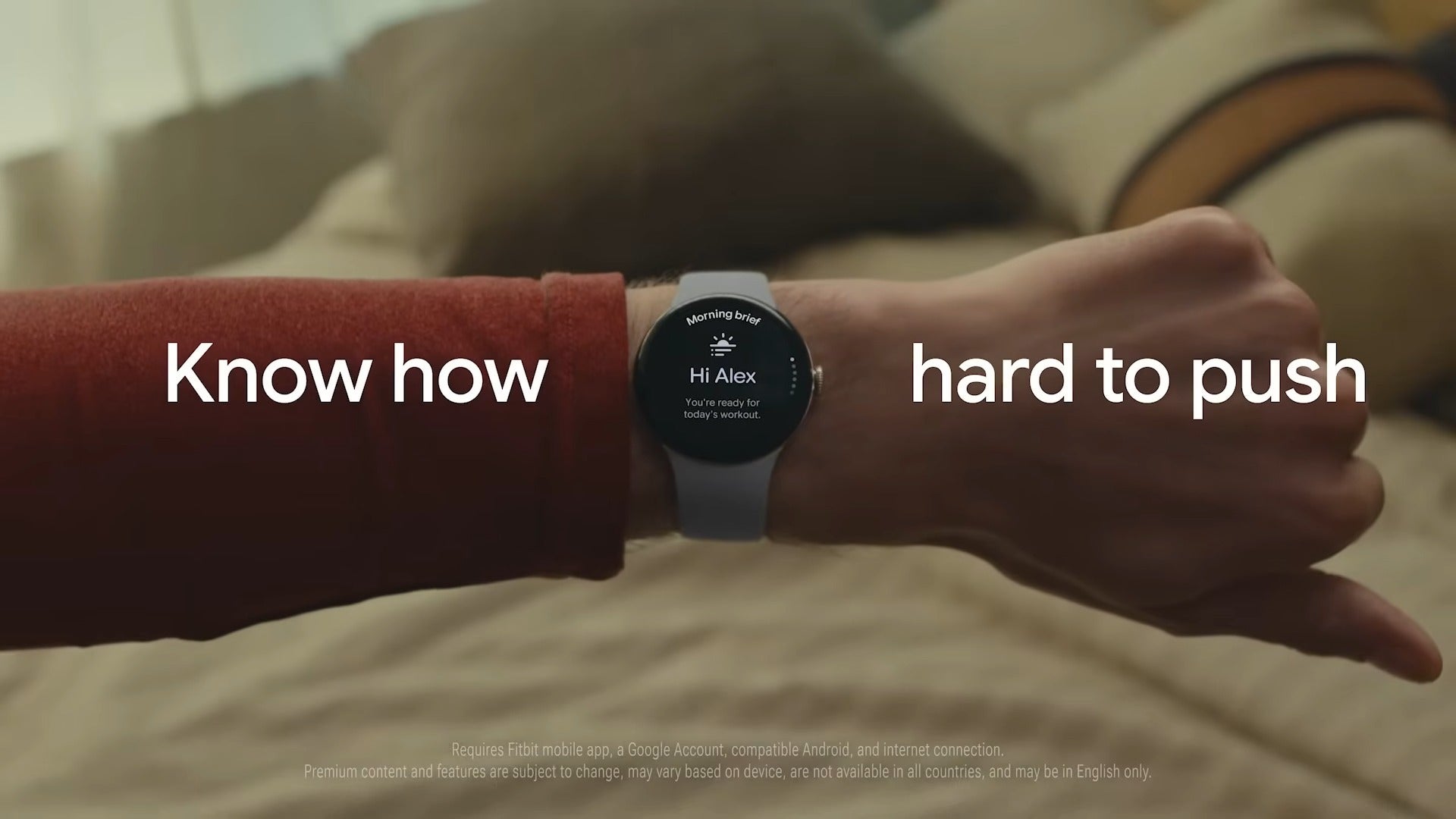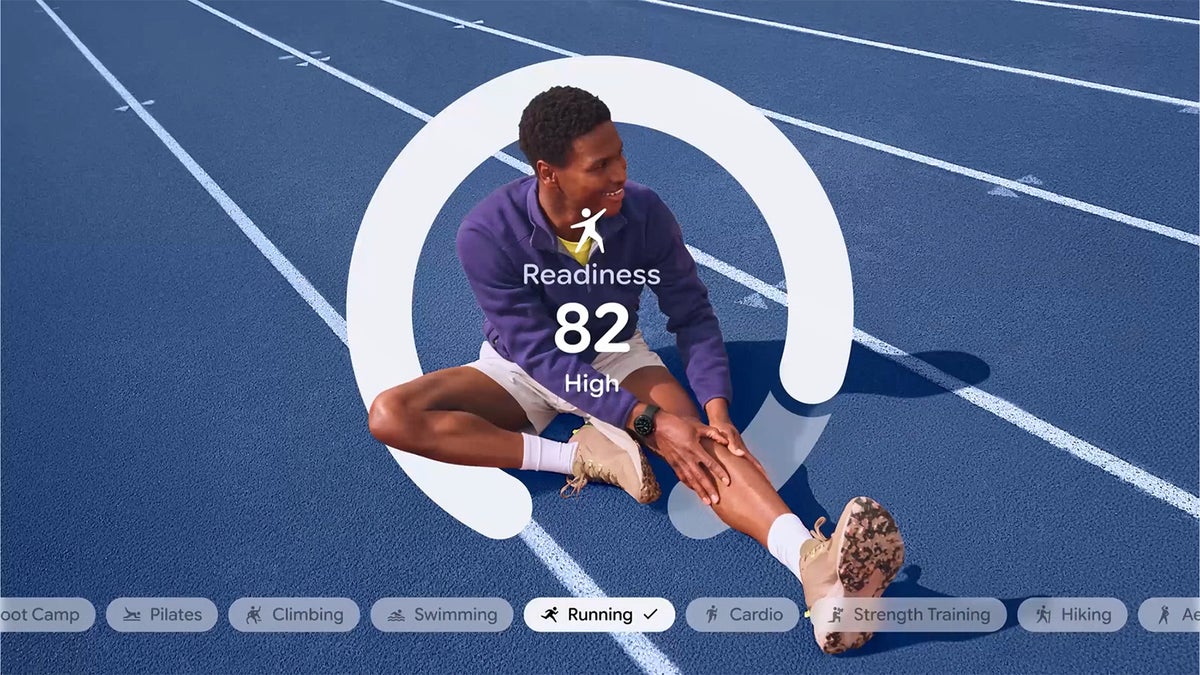AI on sports watches has so far ranged between "mildly useful" to "completely ignorable".
But Google unveiled plans for something different — an all-encompassing AI health coach that does not limit itself to just patting you on the back for your recent run (which is practically the definition of Apple's hyped new Workout Buddy feature in WatchOS 26).
Google is attempting to build something actually useful that should be able to help you understand a recent workout as well as a long-term health pattern using months or even years of accrued data. And this is where it gets interesting.
Workout summaries with real value

First, post-workout summaries are not just zingers (you unproductive Garmin peeps know what I mean here) or two sentences that do nothing but recap your watch data that you already saw yourself. No, instead you are getting long paragraphs of texts with something actually useful in there.
This new Fitbit AI health coach is ambitious and also, very hungry for your data.
I know a few people that get paranoid the moment they hear about their data being used (worse yet, their health data!), but if you ask me, we need more data analyzed rather than less, if we are to get any useful health insights.
Google realized there is a big problem: an overwhelming amount of information written for everyone in general and no one in particular.
And lack of insights has been the biggest problem with smartwatches that Google uncovered in one fell swoop.
Yes, you get tons of data, but most people simply don't know what to do with it. I am yet to understand how are those "breaths per minute" numbers I get every night on an Apple Watch are important or even meaningful in my life.
Similarly, thanks for telling me my wrist temperature trends while I sleep, but again, what should I do with this information, really?
Health, sleep and fitness are an area where there is lots of anecdotal advice and plenty of opinions. It's extremely hard to sort out the pseudo-science in all of that noise from the real science. That is where a properly trained AI can help users hear through the noise.
Google is not only giving you a "one-and-done" type of advice, but you can talk to the AI coach, or it can see your data and adjust the workouts rather than always pushing you for "one more rep!"
In the above example, you can see the sleep coaching adapt to two different days.
Imagine an AI coach that knows your weight and glucose data too
In order for an AI coach to be truly helpful, it needs to know the big picture.
That is the risk and the big promise of this new initiative.
Through Health Connect and HealthKit, the Fitbit AI coach can tap into more than just your watch data, you can link it to various other health and wellness data. Imagine weight from your favorite smart scale, or your glucose data from a continuous glucose monitor.
Will this also cover blood pressure data for hypertensive people? Or heck, maybe take it further with full-on lab data?
I don't think Google would dare go that far with the lab data, but I sure would like AI to be able to tell me what those dozens of confusing numbers from my yearly lab tests actually mean. Democratize health knowledge, indeed.
The Google advantage
A personal health large language model (PH-LLM) for sleep and fitness coaching
Right before the event, Google published a paper in Nature Magazine about its work on a PH-LLM.
The introductory quote explains the benefits of this well:
PH-LLM is a version of the Gemini LLM that was finetuned for text understanding and reasoning when applied to aggregated daily-resolution numerical sensor data. We created three benchmark datasets to assess multiple complementary aspects of sleep and fitness: expert domain knowledge, generation of personalized insights and recommendations and prediction of self-reported sleep quality from longitudinal data. PH-LLM achieved scores that exceeded a sample of human experts on multiple-choice examinations in sleep medicine (79% versus 76%) and fitness (88% versus 71%).
Having this specific LLM outperform human experts sounds like an excellent start for such an important and delicate topic as your personal health and fitness. Of course, this is a quote from Google itself, so it's okay to have some doubts about this, and we'd have to wait until October to see it all in action.

It's also reassuring that it is not just the AI scientists working on this, but Google also has input from basketball superstar Steph Curry and his performance team.
And this will not just be Curry and his team providing their insight on one occasion. The star and his team will work closely with Google's health experts and AI engineers to test upcoming products and experiences. Curry will also actively use the Pixel portfolio, including phones, watches, and headphones. This is real hands-on experience, not just a marketing exercise.
Have you seen any other company think on such a grand scale about your health? We already mentioned Apple, which has got... Workout Buddy, which is cool I guess, but also extremely limited.
The AI Health coach is coming as a preview with Fitbit Premium subscribers in the US in October. I can't wait to see it in action.


